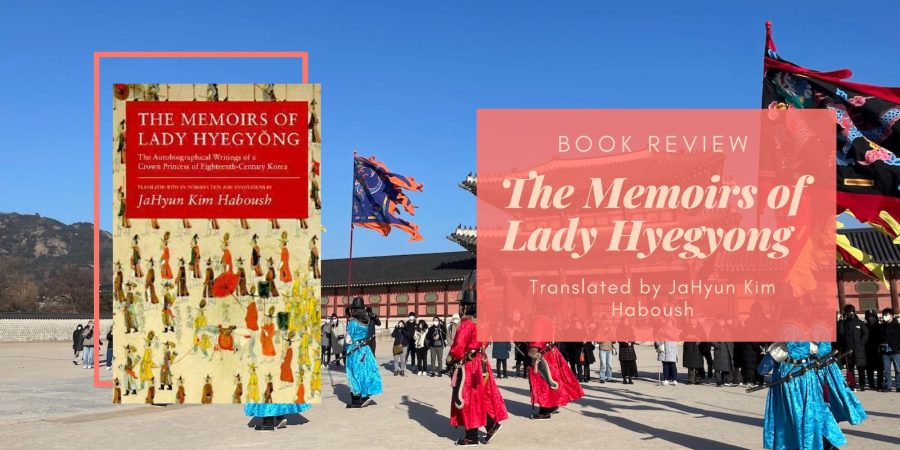I found this book while looking for other books that Dorothy Ko was involved in (she wrote the excellent Cinderella’s Sisters) and was instantly intrigued by this memoir by a crown princess of 18th century Korea. Ko wrote the foreward to this translation, which is how I found it. To make things more interesting, Lady Hyegyong is the wife of Prince Sado, the tragic prince who was locked in a rice chest and left to die.
To be very accurate, these memoirs consist of four sections written over 10 years. There are:
- The memoir of 1795 – addressed to the heir of her natal family, written in the form of a family injunction
- The memoir of 1801 – in the form of a memorial, to protest the execution of her brother
- The memoir of 1802 – in the form of a biography to urge the new king (her grandson) to continue to carry out the wishes of his father (her son)
- The memoir of 1805 – in the form of a historiography, to give an account of the tragic incident of the death of Prince Sado
Taken together, these four memoirs paint a picture of a saintly Hong family (perhaps the most unbelievable aspect of these accounts) while bringing a surprisingly amount of nuance into the issue of Prince Sado’s death at the orders of his father King Yeongjo. She resolutely refuses to blame either side completely, instead trying to show that both sides contributed to the issue. The King might have serious failings as his father, but Prince Sado’s illness (possibly mental illness) led to the deaths of many and the king is portrayed as being forced to take drastic steps for the good of the nation. In this way, she tries to defend both her husband and her father-in-law.
Of course, as this is a memoir, it’s by no means an objective account of the situation. I found her defense of her natal family to be a case of “the lady doth protests too much”, as she made it sound like they were completely innocent of all things. Taking the first three memoirs together had the opposite effect of making me wonder just what she was leaving out to make her family sound so good. I would actually like to read more about the history of this time, as I’m sure there’s a lot more to be uncovered.
And of course, I thought she underplayed some of the horrible things that Prince Sado did. She quite casually mentioned his physical and sexual assault of women. And while she admits that these and the murder of several servants as a major reason why he had to be stopped, she does not dwell on these incidents and we do not know anything of the victims. Perhaps it’s because she attributes all of this to his illness, where all good attributes are because of his inherently good nature while all evil is due to the illness. It’s a rather different way of viewing the world, but I appreciate that she was in the difficult position of being married to Prince Sado and also concerned with making sure her son and his future reign was safe.
As such, I wouldn’t take this as the be-all and end-all account of what happened in 1762. It is, however, a noteworthy memoir not only because of its historicity but also as a literary masterpiece. It’s written in hangul rather than literary Chinese and perhaps more significantly, it is a memoir written by a woman that focuses on the public sphere rather than the private sphere. As the introduction explains, the “overwhelming majority [of memoirs by women] focus exclusively on the private and domestic sphere of life.” As such, while I take what is written with a healthy grain of salt, I believe that if I continue to be reading more about this period in history, Lady Hyegong’s memoirs will provide a valuable counterpoint to other interpretations about this period.
If you’re looking to read Korean literature and/or you’re looking to read more works by women, then I highly encourage you to pick up the memoirs of Lady Hyegyong. I really appreciated the introduction and footnotes in this translation as well, which give a lot of useful context to the actual memoirs and highly recommend reading them.
